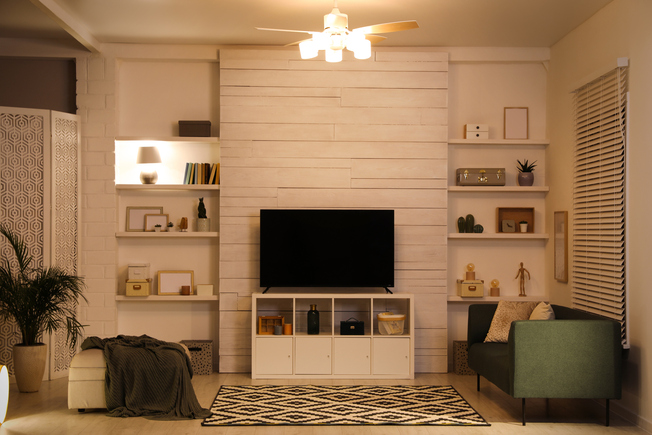
6 Expert Budgeting Tips to Help You Afford a Rent Increase
Apr 22, 2024
As inflation continues to rise and the cost of living follows suit, renters are forced to come face-to-face with the dreaded rent increase. If your monthly rent price has gone up after a year of living in your apartment but your monthly income has stayed the same, you may feel like you have no choice but to pack up and move.
But that’s not necessarily the case. According to Maggie Tucker, founder and host of Inside Out Money podcast (and an early retiree at just 41 years old), there are money moves you can make to be able to afford the extra housing costs without increasing your take-home pay. Here’s her advice.
Know where your money is going.
Tucker’s number one piece of budgeting advice is to understand how you tend to spend your income. “It's hard to know where you can cut back when you don't have a complete picture of where your existing money is going,” she says. “Are you spending more than you realize eating out, shopping for things you don't really need, or perhaps your grocery bill is much higher than you expected?”
Tucker’s favorite method of tracking monthly expenses is to use spreadsheets, but you can also use a budgeting app — she recommends Monarch Money or YNAB (which stands for You Need A Budget). Apps like these will show you budget breakdowns based on your different categories of expenses and help you set financial goals. If you’d rather do it on your own, you can also analyze your bank and credit card statements, categorize your spending, and then create a spreadsheet based on your findings.
The hardest part about learning to save money, Tucker says, can be abandoning the ignorance-is-bliss philosophy and diving into how much money you are spending. “People are often afraid to track things because they think they aren’t doing well, but burying your head in the sand and ignoring the data definitely isn’t going to move you forward in a positive direction,” she says. “As I often say on my podcast: What gets measured gets better.”
Get real about what matters to you.
After you’ve gained access to your spending habits through a spreadsheet or personal finance app, you will start to get a better idea of areas where you can budget. But before you make any decisions and start to take action, Tucker says, you might want to reflect on what’s most important to you.
Although budgeting entails dealing with numbers and spreadsheets, it also involves making choices that directly affect your day-to-day life. “Spend time being really thoughtful about what matters to you in life and how you want to adjust your personal finances to reflect those intentions and aspirations,” she says.
For many people, the apartment where they live has a very high impact on their quality of life, especially if they work from home or live near a community of neighbors and friends. “If this specific apartment is a priority at this time in your life, then you should be willing to make other tradeoffs to afford the higher rent payment,” says Tucker.
On the flip side, maybe your reflection leads you to a different conclusion that makes you want to prioritize affordability. “You might decide you’d rather be able to spend in other categories like groceries, transportation, socializing with friends, or travel,” she says. If you resonate with that choice, you might find it less disappointing to find a new apartment with a lower cost of rent or, if possible, to find a roommate that may offset the cost of your place.
Don’t forget to prioritize your savings goals.
Even if you reduce spending elsewhere, there are unfortunate situations where you simply need to move on from your current apartment, Tucker says: “If the increase in rent will put you into a situation where you are living paycheck to paycheck and aren’t able to maintain an emergency fund, invest in your 401k, and save for the future, then you should consider other less expensive housing options.”
If you don’t fall into those categories, you can make other moves to save money. But don’t forget: It likely won’t be one-size-fits all. “For the average person, you're going to need to do a few things combined to save that extra money for rent,” she says. “For some people, there could be one big-bang expense they can remove, but assume you'll need to reconsider multiple expenses and priorities in your life.”
Stop walking into physical retail stores.
If your rent is increasing by $250, for example, and you know you tend to spend about that much when you walk into stores that are most tempting for you (Target, TJ Maxx, Amazon, etc.), it might be time to get more comfortable with items you already own and cut off those toxic retail relationships. This is an easy short-term solution that will keep you afloat while rental market rates increase — and your savings account will thank you for it.
“Reign in your spending on superfluous things you want but don't need*,* and you may quickly find that extra rent money,” says Tucker.
Rethink your transportation costs.
The average monthly car payment in the U.S. is $738 for new cars and $532 for used cars. “If you live in a city with reliable public transportation, consider a less expensive car option or getting rid of a car altogether,” she says. If you can’t get rid of a car transportation option, you can always replace your expensive car with a cheaper reliable vehicle. “Your car insurance will often cost less as a result, too.”
Some cities are even seeing an increase in car subscription programs, where you don’t own a car or pay for insurance but instead pay a monthly fee based on how many miles you drive, you get your own personal vehicle, and can cancel the subscription at any time. This could be a relatively cheap option if you don’t use your car all that often or only make a short daily commute.
Get a cheaper cell phone plan.
According to Tucker, many Americans pay over $100 a month for cell phone service. “But if you switch to a discount cell phone provider like Visible, which is owned by Verizon and on the Verizon network, you can get an unlimited data plan for a flat fee of $25 per month,” she says. “There are also other carriers like Mint Mobile and prepaid cell phone plans with all of the large carriers.”
Cutting that cost could be a difference maker if your rent is only increasing by a small (yet still intimidating) number.
Don’t forget: Don’t be too hard on yourself. Tucker reminds us that mindset is everything and it helps to be kind to yourself. “Wipe the slate clean from the frustrations of the past and focus on the future,” she says.
Top cities
Atlanta Apartments
1,999 apartments starting at $600/month
Austin Apartments
4,949 apartments starting at $600/month
Baltimore Apartments
1,472 apartments starting at $500/month
Boston Apartments
3,499 apartments starting at $940/month
Charlotte Apartments
2,903 apartments starting at $450/month
Chicago Apartments
4,012 apartments starting at $450/month
Dallas Apartments
5,609 apartments starting at $604/month
Fort Worth Apartments
2,193 apartments starting at $600/month
Houston Apartments
4,504 apartments starting at $590/month
Las Vegas Apartments
1,081 apartments starting at $704/month
Los Angeles Apartments
11,535 apartments starting at $625/month
Miami Apartments
544 apartments starting at $1,000/month
Milwaukee Apartments
928 apartments starting at $465/month
New York Apartments
4,118 apartments starting at $488/month
Oakland Apartments
608 apartments starting at $885/month
Orlando Apartments
842 apartments starting at $825/month
Philadelphia Apartments
3,657 apartments starting at $550/month
Phoenix Apartments
4,153 apartments starting at $599/month
Pittsburgh Apartments
1,223 apartments starting at $600/month
Portland Apartments
2,519 apartments starting at $599/month
Raleigh Apartments
1,367 apartments starting at $750/month
San Antonio Apartments
3,925 apartments starting at $525/month
San Diego Apartments
2,960 apartments starting at $650/month
San Francisco Apartments
436 apartments starting at $675/month
San Jose Apartments
405 apartments starting at $1,300/month
Seattle Apartments
3,623 apartments starting at $450/month
Tampa Apartments
1,078 apartments starting at $800/month
Washington DC Apartments
2,878 apartments starting at $745/month


